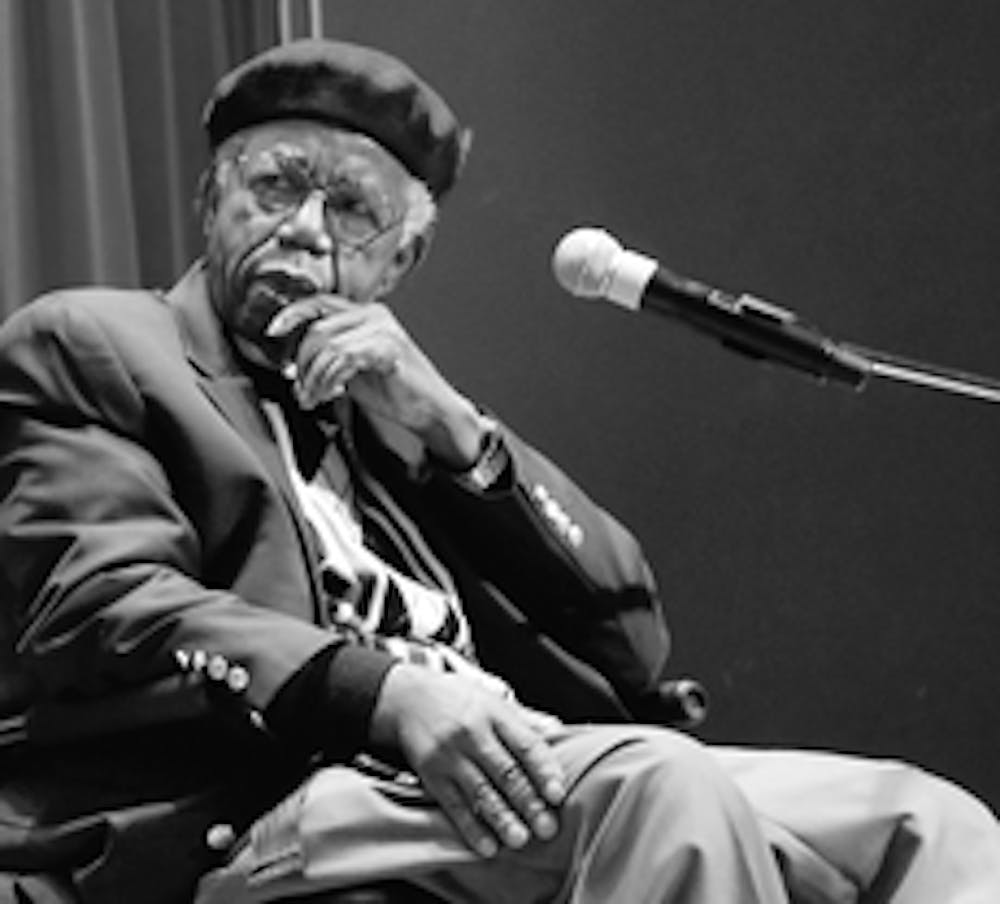
Though it is impossible to replicate the comfort of a living room in a large auditorium, last night's interview with Chinua Achebe came close. With a 500-person audience filling the room to capacity, the setting created by the Free Library of Philadelphia managed to transform Achebe's dialogue into something more like an insightful fireside chat.
Achebe is most noted for his 1958 novel Things Fall Apart, a book that challenged Western thought on the effects of the colonial presence in Africa. The recipient of over 30 honorary doctorates and the Booker award for lifetime achievement, Achebe visited Philadelphia for the first time in six years to celebrate the 50th anniversary of the release of his ground-breaking novel.
As some watched from a screen upstairs, the crowd sat hushed inside, quieted by the dimmed lights and the lyrical quality of Achebe's voice. "This book wrote me rather than the other way around," he said of Things Fall Apart. "It said, 'don't worry, we'll do it together.'"
Writer and Philadelphia native Lorene Cary conducted the interview with Achebe. A senior lecturer in the English department at Penn, Cary inquired about Achebe's decision to write his novel in English.
"What was important for me was the recognition that I was dealing with two languages that were not related historically," he responded, "and that the two languages were holding a conversation."
Engineering junior Connie Choi said she identified with Achebe's description of translating from Igbo to English in order to give his people a voice. "We take language for granted," she said. "We forget it is a gift."
"It was as though people were waiting but didn't quite know what they were waiting for," Achebe said of the change in the way people viewed African colonialism after his book was published.
His words come during a time of marked reflection on the role of race in society among students on Penn's campus.
With new groups being formed such as White Students Against Racism and the development of a course on whiteness offered this summer, Penn students, like Achebe, are using language to foster change.
The Daily Pennsylvanian is an independent, student-run newspaper. Please consider making a donation to support the coverage that shapes the University. Your generosity ensures a future of strong journalism at Penn.
DonatePlease note All comments are eligible for publication in The Daily Pennsylvanian.







